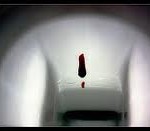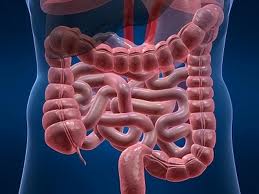Colon cancer is a growth of malignant cells in the colon or also known as large intestine which is located at the lower part of digestive system. The majority cases of colon cancer start with a little and noncancerous mass of cells known as adenomatous polyps. As it progresses some of these polyps turn out to be colon cancers. These polyps might exist in small sizes only and generate few that is why the doctors suggest regular screening test to avoid colon cancer by recognizing polyps before they develop into colon cancer. So, people should be aware of early colon cancer signs and symptoms to have an early treatment.
What are the causes of colon cancer?
Most cases of colon cancer, the causes are not apparent.  Medical experts know that when the healthy cells in the colon become distorted colon cancer may be develops. Normally, healthy cells mature and break up in an organize way to maintain the function of the body in general. However, at times the growth develops uncontrollably even the new cells are not needed. This exaggerated growth of the cell in the colon and rectum will be the reason of formation of precancerous cells in the inside layer of the intestine that in a long run may turn out to be cancer cells.
What are the risk factors of colon cancer?
- People with 50 years of age or more are the one usually diagnosed with colon cancer. It may also happen to people with younger age but less often.
- Races have also greater effect of having colon cancer. The African-American race has greater possibility of colon cancer than other races.
- People with adenomatous polyps have greater possibility of developing colon cancer later on.
- Inflammatory intestinal illnesses of the colon like Crohn’s disease and ulcerative colitis may enhance the possibility of colon cancer.
- Hereditary syndrome may enhance the risk of developing colon cancer.
- People may have greater possibility of developing colon cancer if more than one of the family members is affected with the disease.
- People which have poor diet like eating more foods that have high fat and calories content than rich in fiber may also have tendency to develop colon cancer.
- People that lack regular exercise may also increase the risk of developing colon cancer.
- Diabetic people may also enhance the risk of colon cancer.
- Obese people are also has a greater risk of developing and dying of colon cancer than people with normal weight.
- People who do smoking may have a greater possibility of developing colon cancer.
- Heavy drinkers of alcohol increase the risk of developing colon cancer.
- People that had undergone radiation therapy intended for abdomen previously to cure other cancer may have greater possibility of developing colon cancer.
What are the ways to prevent colon cancer?
There are certain ways to make to lessen the possibility of having colon cancer. These include the following.
- Eat a lot of fruits, vegetables and whole grains. These are the foods rich in fiber and antioxidant that bring great help to prevent from developing cancer.
- Avoid or limit the intake of alcohol. If you can not totally eliminate the drinking of alcohol just drink of not more than one in a day for women and two for men.
- Avoid smoking cigarettes. Ask health provider of the ways that can help you to stop smoking.
- Do physically active. Do exercise or any physical activity for 30 minutes on most days in week. Ask your doctor of what workout program suits you.
- Keep a healthy and good weight. Try to keep a healthy weight by eating nutritious foods with daily physical activity. If you need to lose weight, ask your doctor of the effective healthy ways to accomplish your objective.
- Consider screening test at 50 years of age or as early as 45 if you are an African-American. Screening test may include annual fecal occult blood testing, sigmoidoscopy for every five years, colonoscopy for every ten years and virtual colonoscopy for every five years.
What are the early colon cancer signs and symptoms?
1.    Bowel habit.
 There is a change in bowel routine or habit together with constipation or diarrhea
There is a change in bowel routine or habit together with constipation or diarrhea
2.    Blood in the stool.
 There is a presence of blood in the stool or rectal bleeding.
There is a presence of blood in the stool or rectal bleeding.
3.    Abdominal distress.
 There is a constant abdominal pain or spasm.
There is a constant abdominal pain or spasm.
4.    Fatigue.
 There is a feeling of tiredness or weakness.
There is a feeling of tiredness or weakness.
5.    Weight loss.
 There is inexplicable loss in weight even without trying.
There is inexplicable loss in weight even without trying.
Consult with your doctor immediately if you do experience all of these early colon cancer signs and symptoms to obtain proper evaluation and treatment.
